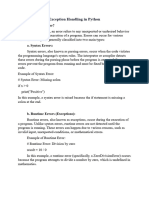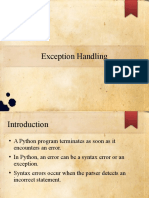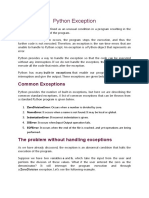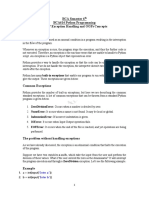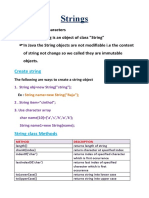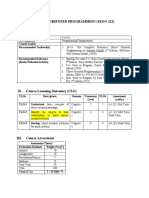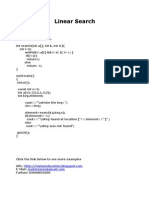0% found this document useful (0 votes)
5 views5 pagesError and Exception Handling in Python
The document provides an overview of errors and exceptions in Python, distinguishing between syntax errors and exceptions that occur during program execution. It explains how to handle exceptions using try...except blocks, the importance of handling specific exceptions, and the use of else and finally blocks. Additionally, it covers raising exceptions and lists common built-in exceptions in Python.
Uploaded by
raghuveera97nCopyright
© © All Rights Reserved
We take content rights seriously. If you suspect this is your content, claim it here.
Available Formats
Download as PDF, TXT or read online on Scribd
0% found this document useful (0 votes)
5 views5 pagesError and Exception Handling in Python
The document provides an overview of errors and exceptions in Python, distinguishing between syntax errors and exceptions that occur during program execution. It explains how to handle exceptions using try...except blocks, the importance of handling specific exceptions, and the use of else and finally blocks. Additionally, it covers raising exceptions and lists common built-in exceptions in Python.
Uploaded by
raghuveera97nCopyright
© © All Rights Reserved
We take content rights seriously. If you suspect this is your content, claim it here.
Available Formats
Download as PDF, TXT or read online on Scribd
/ 5



